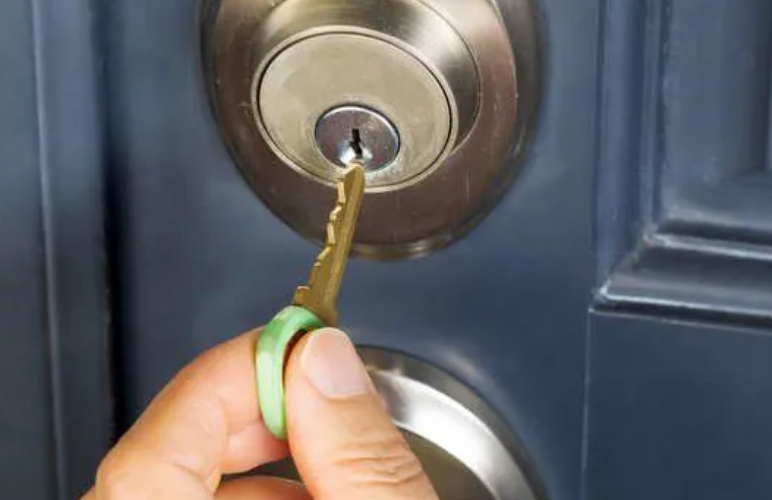A Brief Guide to Choosing the Right Lock for Your New Home

When you finally get the keys to your new home, the excitement is almost palpable. But hold on a second, are those locks secure enough to protect all that joy inside? Let’s be real, the peace of mind that comes from knowing your home is safe is unmatched. Even in the serene and beautiful locales of Portland, ensuring your lock systems are robust and reliable is paramount. But with the various options available, how do you decide which lock is right for you? Especially when the door lock is often the first line of defense against intruders, striking a balance between security and ease of access can be quite a dilemma.
You might be looking for something modern, like a smart lock, or perhaps something a bit more traditional. Whatever the case, our brief guide is here to assist you in navigating through the myriad of options available in the lock world. As we delve into the specifics, you’ll gain insights that could be crucial in making an informed decision, and remember, expert help is never too far away with Portland locksmith services, ensuring you’re always safe and secure.
Evaluating Different Types of Locks
When you think about home security, locks inevitably come to mind. As time has evolved, so have the designs and functionalities of locks, which means homeowners have an array of choices at their fingertips. Here’s a closer look at some popular types of locks and what they bring to the table:
1. Deadbolt Locks: These are perhaps the most common locks used in homes. The reason for their popularity lies in their strength and simplicity. Unlike spring bolt locks, which work with a spring mechanism, deadbolts are moved directly by the key or a thumbturn, offering greater resistance against forceful entries.
2. Knob Locks: Frequently found on exterior doors in conjunction with deadbolts, knob locks have their locking mechanism inside the knob itself. While convenient, they shouldn’t be your primary security measure on external doors, as they can be easily broken off.
3. Lever Handle Locks: Ideal for inner doors, these locks have a large push-down style handle, making them easy to open, a feature particularly appreciated in commercial spaces.
4. Cam Locks: Typically used in filing cabinets or mailboxes, cam locks have a base and a cam, the tailpiece, which rotates as the key is turned to lock or unlock.
5. Padlocks: The most recognizable of all lock types, padlocks are freestanding and portable. They come in a variety of sizes and are versatile in application, from securing lockers to gates.
6. Smart Locks: A modern addition to the lock family, smart locks don’t require traditional keys. Instead, they can be operated via smartphones, key fobs, or even voice commands. They can also offer features such as remote monitoring and access to logs.
7. Wall Mounted Locks: As the name suggests, these locks are mounted directly on the wall and are often seen securing safes or gates. They’re frequently used as a secondary security measure.
When choosing a lock, consider the door’s purpose, the level of security required, and the ease of use. For instance, the front door might need a deadbolt for maximum security, while an internal office door might benefit more from a lever-handle lock for easier access.
Once you’ve made your choice, don’t compromise on the quality of the installation. An improperly installed lock can compromise even the best security intentions. For peace of mind and assurance, consider professional lock installation services. Experts will ensure the lock is fitted correctly, functions seamlessly, and provides the level of security you expect.
In summary, selecting the right lock type for your needs can be a straightforward process when you have the right information. Whether you’re looking for a traditional approach or embracing modern technology with smart locks, ensure your locks are installed correctly, setting the foundation for a safer home.
Prioritizing Security and Convenience
Security and convenience are often viewed as two ends of a spectrum when it comes to choosing the right lock for your home or business. On one end, you have the utmost security locks that are virtually impenetrable but might require more steps or time to open. On the other hand, you have convenience locks that can be accessed quickly and easily but may not offer the highest level of protection. So, how do you find that perfect middle ground?
1. Understanding Your Needs: The first step in striking a balance between security and convenience is understanding your specific needs. For instance, a storage room with valuable equipment may require a high-security lock, while an internal door in a family home might prioritize ease of use.
2. Modern Solutions: Technology has given us the luxury of merging security with convenience. Think of smart locks, for instance. These locks offer advanced features such as biometric access, remote locking and unlocking, and even monitoring who enters or exits your property. With these, you can achieve high security without compromising on quick and hassle-free access.
3. Backup Access: Regardless of the lock type you choose, always have a backup plan. Electronic locks, for example, are highly convenient, but what happens during power outages? A mechanical key override can be a lifesaver in such situations.
4. Ease of Maintenance: Over time, even the sturdiest locks can face wear and tear. Choosing locks that are both durable and easy to maintain or repair can save you a lot of trouble in the long run. Remember, a malfunctioning lock can compromise both security and convenience.
5. Professional Consultation: When in doubt, consult with professionals. A reputable 24/7 locksmith in Portland, Oregon, can provide valuable advice tailored to your specific needs, ensuring you don’t have to compromise on either security or convenience.
6. Routine Checks: Regularly assessing the state of your locks is vital. Over time, a previously secure lock might become vulnerable due to external factors or technological advancements. Stay updated, and periodically check if your security measures still align with your needs.
7. Quick Assistance: In cases of emergencies, like lockouts or malfunctioning security systems, having access to immediate professional help is a blend of both security and convenience. Here, the services of a 24/7 locksmith in Portland, Oregon, become invaluable. They can provide quick solutions, ensuring that you’re never left vulnerable.
In the grand scheme of things, security should always be a priority. However, this doesn’t mean you have to endure cumbersome systems or processes. By carefully assessing your needs and staying updated with the latest in security technology, you can find a solution that offers both robust protection and ease of use. And always remember, when in need, the right locksmith can make all the difference.
Smart Locks: Are They Worth It?
In the era of smart homes and interconnected devices, the allure of smart locks has grown significantly. These high-tech devices, with their promise of keyless entry, remote access, and heightened security, seem like the perfect solution for the modern homeowner. But are they truly worth the investment?
1. Advantages of Smart Locks:
Convenience: The most significant selling point of smart locks is the convenience they offer. Forget the days of fumbling for keys. With smart locks, access can be granted through smartphones, voice commands, or even biometrics.
Remote Access: Another major advantage is the ability to lock or unlock your doors remotely. Whether you’ve forgotten to lock your door in a hurry or need to grant access to a friend, this feature can be incredibly handy.
Activity Logs: Some smart locks provide an activity log, showing who has accessed your home and when, offering an additional layer of security and awareness.
Temporary Access: Granting temporary access has never been easier. With specific models, you can set temporary codes for visitors that expire after a set time.
2. Concerns Surrounding Smart Locks:
Power Dependency: These locks are electronic, meaning they rely on power. While many have battery backups, it’s essential to consider what happens during extended power outages or if batteries die unexpectedly.
Technology Vulnerabilities: Like any other connected device, smart locks can be vulnerable to hacking. Though manufacturers continually work to enhance security features, it’s a risk to be aware of.
Cost: Generally, smart locks are more expensive than traditional locks, both in terms of the initial investment and any associated subscription fees for advanced features.
3. Making the Right Decision:
When contemplating the switch to smart locks, consider your specific needs and circumstances. If you value the convenience and modern features they bring, they might be the perfect fit. However, if you’re uncomfortable with the potential vulnerabilities or the cost, traditional locks, when used and installed correctly, still offer robust security.
If you decide to take the plunge into the world of smart locks, ensure you choose a reputable brand with positive reviews and strong security features. Furthermore, professional installation can make a significant difference in the lock’s effectiveness. In situations where you’re transitioning from a traditional lock or need an upgrade urgently, opting for emergency lock installation services can be a wise choice.
In conclusion, smart locks bring a blend of modern convenience and enhanced security features to the table. While they may not be for everyone, understanding their advantages and concerns can help you make an informed decision. And if you ever find yourself in need, remember that emergency lock installation services are just a call away to ensure your home remains secure.
Conclusion:
Choosing the perfect lock for your home or business is no small decision. Whether you’re leaning towards traditional deadbolts or the modern allure of smart locks, understanding their intricacies, strengths, and potential weaknesses can make all the difference. Remember, your lock doesn’t just protect your valuables; it safeguards your peace of mind.
At Locksmith Empire, we believe in empowering our clients with the right knowledge so they can make informed choices that best fit their needs. If you ever find yourself in a predicament, need professional advice, or are simply ready to upgrade, know that we’re just a phone call away, always ready to serve the Portland community.
Frequently Asked Questions:
Q: Are smart locks as secure as traditional locks?
A: Smart locks can be just as secure as traditional locks, but it’s essential to choose reputable brands and stay updated with software patches. They offer convenience and advanced features, but like any tech product, they can have vulnerabilities. Regular maintenance and updates can mitigate most risks.
Q: How often should I replace or upgrade my locks?
A: It’s recommended to assess your locks every few years or after significant life events like moving to a new home. If you notice wear and tear or if there have been security advancements, it might be time to consider an upgrade.
Q: Can I install a lock by myself, or do I need professional help?
A: While many locks come with DIY installation kits, professional installation ensures your lock functions optimally and provides the intended security. Improper installation can compromise the lock’s effectiveness.
Q: What should I do if I’m locked out of my home?
A: Stay calm and consider if there’s another way in, like a backdoor or through a trusted neighbor who might have a spare key. If these options don’t work, it’s best to call a reliable locksmith rather than attempt to break in and potentially cause damage.



